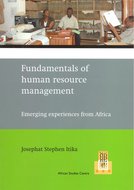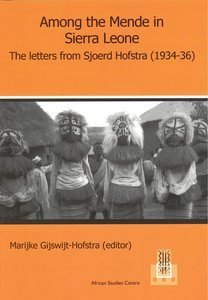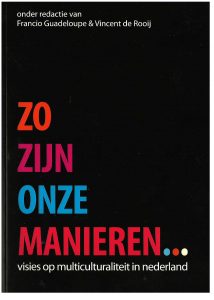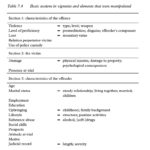Hannah Arendt – Zur Person – Full Interview (with English Subtitles)
Hannah Arendt in the Rozenberg Quarterly
Anthony Court – Hannah Arendt’s Theory of Totalitarianism. Part One: http://rozenbergquarterly.com/?p=3099
Anthony Court – Hannah Arendt’s Theory of Totalitarianism. Part Two: http://rozenbergquarterly.com/?p=3115
Nima Emami – Hannah Arendt and The Green Movement: http://rozenbergquarterly.com/?p=563
Large Archive Of Hannah Arendt’s Papers Digitized By The Library Of Congress: Read Her Lectures, Drafts Of Articles, Notes & Correspondence
Many people read the German-Jewish political philosopher and journalist Hannah Arendt as something of an oracle, a secular prophet whose most famous works—her essay on the trial of Adolf Eichmann and her 1951 Origins of Totalitarianism—contain secrets about our own times of high nationalist fervor. And indeed they may, but we should also keep in mind that Arendt’s insights into the horrors of Nazism did not emerge until after the war.
Arendt did not identify as Jewish during the Nazi’s rise to power, but as a fully assimilated German; she had a romantic relationship with her professor Martin Heidegger, who became a doctrinaire Nazi, and she seemed to have little understanding of German antisemitism during the thirties and forties. Arendt, many have alleged, sometimes seemed too close to her subject.
The archives: http://www.openculture.com/2014/02/hannah-arendt-archives.html
Josephat Stephen Itika ~ Fundamentals Of Human Resource Management: Emerging Experiences From Africa
 ‘Leaders must be guided by rules which lead to success.’ (Machiavelli: The Prince)
‘Leaders must be guided by rules which lead to success.’ (Machiavelli: The Prince)
Foreword
For over half a century now, most African people south of the Sahara are still living under political, social and economic hardships, which cannot be compared with the rest of the world. For many, the expectations of independence have remained a dream. This state of affairs has many explanations but it is fundamentally based on the nature of African countries and organisations on one hand, and on the other hand there is over reliance on Eurocentric philosophies, theories, and assumptions on how administrators and managers should manage African countries, organisations, and people in such a way that will lead to prosperity. As a result, the same Eurocentric mindsets are used to develop solutions for African leaders and managers through knowledge codification and dissemination in the form of textbooks and the curricula in education systems.
Evidence from economies in South East Asian countries suggests that the success behind these countries is largely explained by high investment in human capital and, to some extent, avoiding wholesale reliance on the importing of northern concepts, values and ways of managing people; that is, the development of human resources capable of demonstrating management in setting and pursuing national, sector wide, and corporate vision, strategies, and commitment to a common cause within the context of their own countries and organisations. Similarly, African managers and leaders effectively cannot manage by merely importing Eurocentric knowledge without critical reflection, sorting and adaptation to suit the context they work in and with cautious understanding of the implications of globalisation in their day-to-day management practices. They have to understand and carefully interpret northern concepts and embedded assumptions, internalise and develop the best strategies and techniques for using them to address management problems in their organisations and countries, which are, by and large, Afrocentric.
Therefore, like Machiavelli, human resource managers, like leaders, must be guided by rules which lead to the success of their countries and organisations. The main challenge facing human resource managers now is to know which rules are necessary and when applied would lead to effective human resource management results in different types of public and private sector organisations and contexts. This is a difficult question to answer. However, we can start by learning one small step at a time from the emerging experiences of our own practices of human resource management in Africa and elsewhere.
This book on ‘Fundamentals of human resource management: Emerging Experiences from African Countries’ has just made a small step in the journey of establishing a link between Eurocentric concepts, philosophies, values, theories, principles and techniques in human resource management and understanding of what is happening in African organisations. This will form part of the groundwork of unpacking what works and what does not work well in African organisational contexts and shed more light on emerging synergistic lessons for the future. The book has fourteen chapters each addressing important issues in human resource management in terms of the Eurocentric approach and reflecting on what is happening in African governments and organisations at the end of each chapter.
Read more
Marijke Gijswijt‐Hofstra (Ed.& transl.) ~ Among The Mende In Sierra Leone: The Letters From Sjoerd Hofstra (1934-36)
 This book offers a unique look behind the scenes of anthropological fieldwork amongst the Mende in Sierra Leone in the mid-1930s. The Dutch anthropologist and sociologist Sjoerd Hofstra (1898-1983), Rockefeller research fellow of the International Institute of African Languages and Cultures and one of Bronislaw Malinowski’s three ‘Mandarins’ (as were also Meyer Fortes and S. Frederick Nadel), reports in long, bi-weekly letters to his adoptive mother about his experiences with the Mende. During his first stay in Sierra Leone (January 1934 – March 1935), Hofstra got blackwater fever, a complication of malaria tropica. His second stay (May – September 1936) came to an untimely end because he again developed symptoms of blackwater fever and was advised to return to Europe. Because of this his fieldwork remained unfinished, and Hofstra never got round to publishing the planned book on the Mende. However, Hofstra published four articles on the Mende in English, photocopies of which are included in this book. Next to these articles Hofstra’s letters to his adoptive mother contain valuable first-hand information about his fieldwork. His daughter, cultural and social historian Marijke Gijswijt-Hofstra, has edited and translated these letters, while also including contextual information.
This book offers a unique look behind the scenes of anthropological fieldwork amongst the Mende in Sierra Leone in the mid-1930s. The Dutch anthropologist and sociologist Sjoerd Hofstra (1898-1983), Rockefeller research fellow of the International Institute of African Languages and Cultures and one of Bronislaw Malinowski’s three ‘Mandarins’ (as were also Meyer Fortes and S. Frederick Nadel), reports in long, bi-weekly letters to his adoptive mother about his experiences with the Mende. During his first stay in Sierra Leone (January 1934 – March 1935), Hofstra got blackwater fever, a complication of malaria tropica. His second stay (May – September 1936) came to an untimely end because he again developed symptoms of blackwater fever and was advised to return to Europe. Because of this his fieldwork remained unfinished, and Hofstra never got round to publishing the planned book on the Mende. However, Hofstra published four articles on the Mende in English, photocopies of which are included in this book. Next to these articles Hofstra’s letters to his adoptive mother contain valuable first-hand information about his fieldwork. His daughter, cultural and social historian Marijke Gijswijt-Hofstra, has edited and translated these letters, while also including contextual information.
ASC Occasional Publication 19 – ISBN: 978‐90‐5448‐138‐6 – 2014
Download book (PDF): https://openaccess.leidenuniv.nl/handle/1887/24890
Zo zijn onze manieren ~ Visies op multiculturaliteit in Nederland ~ Inhoudsopgave
Geen multicultureel drama of naief multiculturalisme maar een realistisch optimistische kijk op multiculturaliteit in Nederland. Vanuit persoonlijke ervaringen of op basis van eigen onderzoek geven de auteurs van deze serie stof tot nadenken over wat ieders bijdrage kan zijn aan een samenleving waarin iedereen tot zijn recht kan en mag komen.
Deze serie artikelen roept ons op de moed te hebben om de Nederlandse samenleving te beschouwen als ‘onder voortdurende constructie’. De auteurs laten zien dat (voor-)oordelen en rigide uitgangsposities niet leiden tot het vaak bezongen ideaal van integratie, maar juist bijdragen tot een verdergaande polarisatie en onbegrip. Iedereen die gelooft in radicale zelfkritiek en respectvolle kritiek van andersdenkenden moet deze serie lezen. Rozenberg Publishers – 2007 – ISBN 978 90 5170 862 2
Inhoudsopgave
Francio Guadeloupe, Vincent de Rooij – Inleiding
Deel I – Het verleden: De wortels van het nu
Lammert de Jong – Tegen de autochtone klippen op
Gloria Wekker – Een Nederlands Fotoboek … Momenten in de multiculturele samenleving
Maria van Enckevort – When Coming Home is no longer a Home-Coming
Brada Kwasi Koorndijk – Multiculturaliteit in Nederland: gevangen in een web van definities
Vincent de Rooij – Multiculturaliteit en meertaligheid: Een kritische beschouwing van het Dutch-only vertoog
Thijl Sunier – What’s in a name?
Deel II – Het heden: Een kritische beoordeling
Feia Tol – De inburgeringscursus: Eenheid of verdeeldheid?
Lucia Lindner – Inburgeren in Ghanees transnationalisme
Yiufai Chow – Multiculturele schizophrenie: ‘Jij bent anders, jij bent Chinees’
Mattijs van de Port – De Islam bestaat niet
Francio Guadeloupe – De zon van multiculturaliteit: Accepteren van wie we zijn
Irene Stengs – Intercultureel intermezzo
Deel III – De toekomst: Bakens van hoop
Pien van Langen – Een smeltkroes in het verpleeghuis
Chantal Gill’ard – We zijn allemaal verschillend en dat blijft
Daan Beekers – Verwante vreemden: Jonge moslims in een ontkerkelijkte samenleving
Erna Kerkhof – Berichten uit Niksland
Jeroen de Kloet – Een pleidooi voor multiculturele vervuiling
Yolanda van Ede – Doggy hondjes
Peter Geschiere – Nawoord
Zo zijn onze manieren ~ Inleiding
 Inleiding
Inleiding
Dit boek wil op een kritische en onbevangen wijze kijken naar multiculturaliteit in Nederland. U leest het goed: multiculturaliteit, en niet multiculturalisme. Het –isme in multiculturalisme geeft aan dat het gaat om een ideologische stroming en dit boek wil niet de kritiekloze vertolker zijn van een specifiek politiek-maatschappelijk ideaal. De bijdragen in dit boek zijn bedoeld als kritische reflecties op de multiculturele staat waarin Nederland zich bevindt: die multiculturele conditie benoemen we hier met de term multiculturaliteit. Multiculturaliteit is geen politiek-maatschappelijk ideaal; het is een gegeven, een realiteit waarmee we ons moeten verhouden. En dat is precies wat de auteurs van dit boek doen: sommigen laten zien hoe moeilijk we het hebben met multiculturaliteit en wat de redenen daarvoor zijn; anderen zetten uiteen hoe mede-Nederlanders van verschillende afkomst door moeilijkheden heen elkaar leren kennen en waarderen en met elkaar tot nieuwe gedeelde praktijken komen; maar ook wordt duidelijk dat multiculturaliteit cultuurverschillen kan opleveren die niet of nauwelijks te overbruggen zijn en mogelijk kunnen leiden tot een nieuwe verzuiling van de samenleving. Dit boek geeft dus geen pasklaar antwoord op de problemen die onze multiculturele samenleving stelt; integendeel, de algemene strekking van de essays in dit boek is dat pasklare of eenduidige antwoorden op onze problemen niet bestaan. Het gemak waarmee vele politici spreken over integratie, Nederlandse identiteit, en eenduidige loyaliteit daaraan, is misleidend en gevaarlijk omdat het medeverantwoordelijk kan zijn voor processen die velen onder diezelfde politici willen stoppen: uitsluiting, xenofobie, politiek extremisme.
‘Zo zijn onze manieren…’ roept de vraag op over wiens manieren het in dit boek gaat. Natuurlijk klinkt in deze regel uit het bekende kinderliedje door dat dit ‘onze’ slaat op de mensen die het voor het zeggen hebben. In multicultureel Nederland zijn dat de witte Nederlanders die ieder die anders is dan zij simpelweg meedelen: dit is hoe wij het doen, als je mee wilt doen moet je doen zoals wij. Maar er is ook een meer subversieve lezing van het ‘onze’ mogelijk. Al die ‘andere’ Nederlanders kunnen immers ook zeggen: ‘zo zijn onze manieren…’.
Ook zij kunnen hun voorwaarden stellen aan de manier waarop wij met z’n allen, Nederlanders van allerhande komaf, met elkaar omgaan. Als iedereen gehoord wil worden en serieus genomen wil worden –en dat is toch waar het in een democratische, open samenleving om draait- moet dat ‘onze’ dus op alle Nederlanders slaan. Als dat zo is komt het integratiebetoog dat uitgaat van een denken waarin minderheden zich dienen te assimileren aan de dominante meerderheid, op losse schroeven te staan. Als we iedereen erbij willen houden zullen we ook naar iedereen moeten willen en kunnen luisteren, contact maken en conflicten aan durven gaan in een inter-culturele dialoog die kan, maar niet hoeft te leiden tot nieuwe manieren van denken en handelen. In plaats van veilig terug te vallen op starre gepolariseerde posities, roepen wij daarom alle Nederlanders op om de moed te hebben het contact en daarmee ook de discussie met anderen aan te gaan.
De auteurs van dit boek hebben de uitdaging opgepakt om buiten de tegenwoordig als veilig geldende grenzen van het assimilatiedenken te treden en hun mening te geven over multicultureel Nederland. Onder de auteurs bevinden zich wetenschappelijke onderzoekers, activisten, studenten, onafhankelijke intellectuelen, docenten, consultants, artiesten, en web chatters: een ratjetoe van mensen met verschillende politieke overtuigingen die niet onverschillig willen toezien hoe grote groepen in onze samenleving lijden door uitsluiting en discriminatie op basis van uiterlijke kenmerken, geslacht, seksuele geaardheid, religie, of klasse. ‘Wij’, de verzameling auteurs van dit boek vormen tezamen een kritische club, een collectief zonder ideologisch zwaartepunt of gedeelde dogma’s, een veelkleurige, multi-religieuze/multi-atheïstische verzameling van mensen die zeggen wat zij belangrijk achten, een nederige club ook die accepteert dat Nederlanderschap geen vaststaand gegeven is maar voor iedereen anders, voor elk van ons meervoudig en veranderlijk kan en mag zijn. Read more


